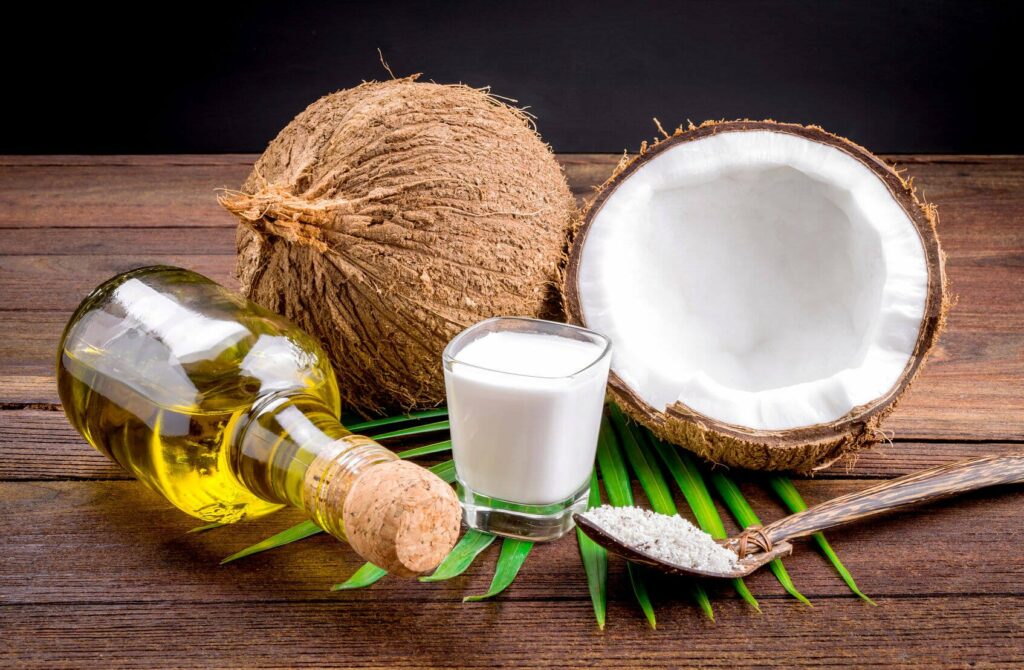In recent years, there has been a growing interest in the health and wellness community regarding the use of medium-chain triglycerides (MCTs) for various benefits, including weight loss, improved cognitive function, and increased energy levels. MCT oil and coconut oil are two popular sources of MCTs that are often compared for their potential health benefits. In this comprehensive guide, we will explore the differences between MCT oil and coconut oil, including their composition, processing methods, nutritional profiles, and potential uses.
Composition:
MCT oil is a concentrated form of MCTs extracted from coconut oil or palm kernel oil. MCTs are a type of fatty acids with a unique chemical structure that consists of medium-length carbon chains (6 to 12 carbon atoms). The most common types of MCTs found in MCT oil are caprylic acid (C8) and capric acid (C10), which are believed to offer the greatest health benefits.
On the other hand, coconut oil is a natural oil extracted from the flesh of coconuts. While it contains MCTs, the concentration of MCTs in coconut oil is lower compared to MCT oil. Coconut oil consists of a mixture of different types of fats, including MCTs (predominantly lauric acid, which is considered a long-chain fatty acid), long-chain triglycerides (LCTs), and saturated fats.
Processing Methods:
The processing methods used for MCT oil and coconut oil differ significantly. MCT oil is typically obtained through a process called fractionation, which involves extracting and isolating the MCTs from coconut oil or palm kernel oil. This results in a product that contains a higher concentration of MCTs compared to coconut oil.
Coconut oil, on the other hand, is often extracted through cold-pressing or expeller-pressing the coconut flesh to obtain the oil. This extraction method retains the natural components of the coconut, including MCTs, but also other fatty acids and nutrients.
Nutritional Profiles:
When it comes to the nutritional profiles of MCT oil and coconut oil, there are some notable differences. MCT oil is highly concentrated in MCTs, specifically caprylic acid (C8) and capric acid (C10). These MCTs are rapidly metabolized by the liver and can be quickly converted into energy, making them a popular choice for individuals following a ketogenic diet or looking for a quick source of energy.
On the other hand, coconut oil contains a more diverse range of fats, including MCTs (predominantly lauric acid, C12), LCTs, and saturated fats. Lauric acid, although classified as an MCT, is metabolized differently in the body compared to shorter-chain MCTs. It undergoes a slower digestion process, similar to long-chain fatty acids, and is considered to have more similar properties to LCTs.
Potential Uses:
MCT oil and coconut oil are commonly used for different purposes based on their distinct properties. MCT oil is often used as a dietary supplement or added to foods and beverages due to its rapid metabolism and potential benefits for weight management and increased energy levels. It is also frequently incorporated into ketogenic diets to help maintain a state of ketosis.
Coconut oil, on the other hand, has a wide range of uses beyond its MCT content. It is a popular cooking oil due to its high smoke point and unique flavor. Coconut oil is also commonly used in skincare products, hair care treatments, and as a natural moisturizer due to its nourishing properties.
Conclusion:
In summary, MCT oil and coconut oil have different compositions, processing methods, nutritional profiles, and potential uses. MCT oil is a concentrated form of MCTs derived from coconut oil or palm kernel oil, while coconut oil is extracted from the flesh of coconuts and contains a mixture of fats, including MCTs, LCTs, and saturated fats.
MCT oil is primarily composed of caprylic acid (C8) and capric acid (C10), which are quickly metabolized by the liver and can be converted into energy. Coconut oil contains a higher proportion of lauric acid (C12), which is metabolized differently and has properties more similar to long-chain fatty acids.
When considering the use of MCT oil or coconut oil, it is important to understand their unique characteristics and potential benefits. Consulting with a healthcare professional or registered dietitian can provide personalized advice based on your specific needs and health goals.

